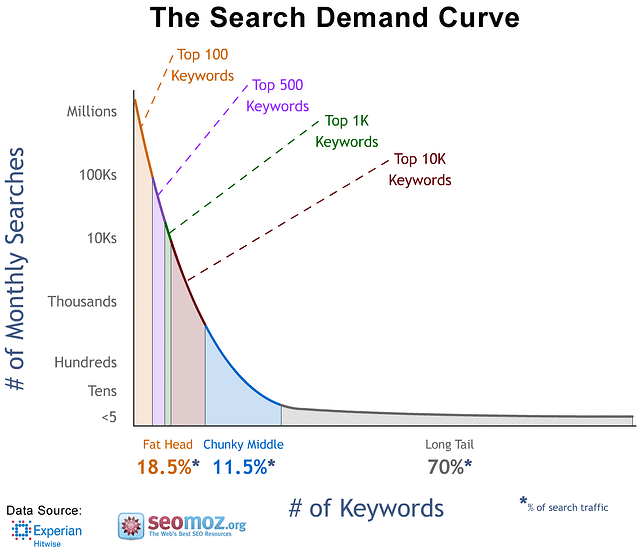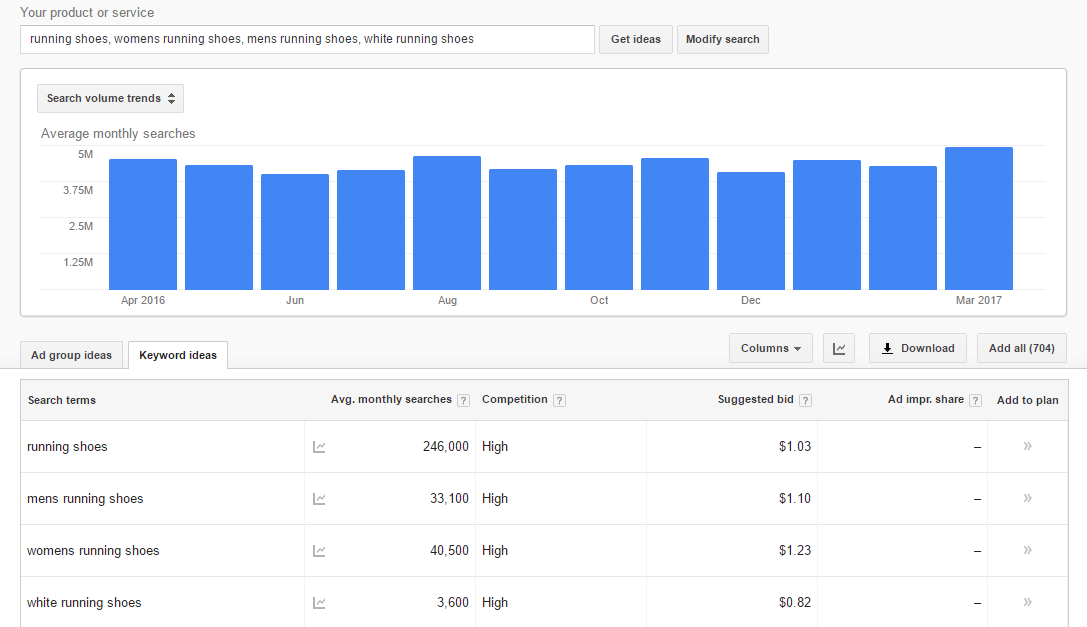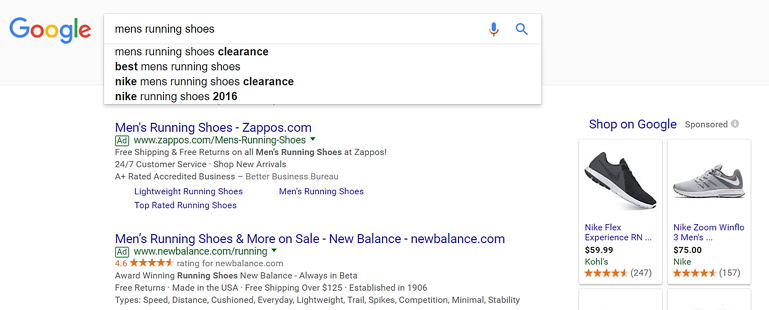Whether you’re a seasoned pro or just getting started, a refresher on the basic principles of Search Engine Optimization (SEO) never hurts. We’re breaking down a key, foundational element to every digital marketing strategy: keyword research for SEO. Before digging deeper into keyword research, let’s make sure you’re familiar with the bare essentials of SEO.
What is SEO?
SEO is the process of driving potential customers to your website from your unpaid or “organic” search results.
An effective SEO strategy has many benefits, including boosting website traffic volume and quality, increasing your organic position on the search engine results page (SERP), higher conversion rates, and higher ROI.
While SEO is a great, free way to market your business, achieving great results takes hard work and time. The first step on the path to a successful SEO campaign is keyword research.
Keyword Research For SEO
Your climb to the top of the organic rankings begins with the question: “How are people searching for my products/services?”
Step one is to identify keywords that people are using to find your products/services. If you’ve never attempted keyword research before, check out this Digital Discussion Quick Tip for a helpful trick to starting your Keyword list.
Find What People Are Searching For
Keep in mind, everyone searches for products/services differently, so don’t make assumptions because the popularity of searches will vary.
Take a look at these key phrases:

*plumber chicago- 1,900 monthly searches
*plumbers in chicago- 390 montly searches
At first glance, these two keywords look nearly identical; however, the number of monthly searches for each keyword is substantially different. “Plumber Chicago” generates 1,900 monthly searches, while “Plumbers in Chicago” only generates 390 searches.
Seeking out keywords with high search volume is a great jumping off point that will show you, on a broad spectrum, what your ideal customers are searching for. Don’t be afraid to get a little lost in your research and experiment with new keywords and unique key phrase combinations. You may be surprised with what you come up with.
Keyword Difficulty
Not all keywords are going to be fit for your SEO strategy. The reason for doing research in the first place is to determine strong keywords that are going to be realistic for you to target. Keyword difficulty describes the competition level among keywords when evaluating their potential to rank. For example, a small business may have a tough time ranking for the same keywords as a larger, more established company.
A good way to check for keyword difficulty is to type in the keywords you wish to target into a a Google search and analyze your competition on the page. If large companies like Walmart, Amazon or Bestbuy take up the first page, you can assume, it will be difficult to rank for that keyword; however; if you see your direct competitors, you can consider that keyword more attainable.
If you’re having trouble finding keywords within reach, don’t be discouraged! There are a number of other ways to get creative with your keywords.
Long-Tail Keywords
One way to target less competitive terms is by targeting long-tail keywords. I’ll be honest, many broad keywords with high competition are going to be a waste of your time. A more efficient use of your time is to go after long-tail keywords, which have lower search volume, but generate higher conversion rates. Long-tail keywords produce quality rather than quantity.
For example, you might think your best keyword is “men’s watch”. Taking this route, you would potentially be going to be up against advertisers with much deeper pockets like Nordstrom, Macy’s, and Amazon. Let’s be realistic…that’s a tough battle to win. Focus on a long-tail keyword like “men’s wood watch” or “waterproof watch for men” to capture traffic looking for a specific product.

Seventy percent of all searches contain long-tail keywords; so, when your ad does appear for the right query, your chances of converting are much higher.
SEO Keyword Research Tools
If you’ve never attempted keyword research before, a tricky hurdle is knowing where to find keywords.
No matter your level of expertise, this list of keyword research tools is everything you need to construct a solid SEO strategy:
-
Google Keyword Planner
The Google Keyword Planner pulls historical data from Google’s search engine. The tool is customizable and easy to navigate. People use the planner to evaluate potential keywords, browse new suggested keywords, estimate search volume and explore traffic in specific geographic areas.
-
Bing Ads Intelligence
The Bing Ads Intelligence tool is Microsoft’s equivalent to Google’s Keyword Planner. Bing’s tool draws data from the Bing Network and is linked to Excel.
-
SEMrush
SEMrush is a website designed for digital marketers and used to gain insight on competitor data. If you plug in your competitor’s website, SEMRush will show you what keywords and phrases are popular for them, as well as their historical rankings. SEMrush highlights metrics like keyword difficulty and provides a direct link to the search engine results page (SERP) for associated keywords. The website can be a great tool for finding targeted keywords and giving you an inside look at your competition.
-
Other helpful tools:
How To Do Keyword Research For SEO
Start your keyword research using Google’s Keyword Planner. Enter a handful of potential keywords into Google’s Keyword Planner and look at the average monthly search column. This column shows the estimated search volume of each keyword entered.

Use an Excel sheet or Word document to keep track of every keyword variation you come up with, so you can refer back to the list for further digging. Scan the Keyword Planner’s list of related keywords, and use it to jog your creativity for new keyword opportunities.
Once you’ve created a decent list of keywords, use Google to dig deeper for long-tail keywords. One at a time, plug your terms into the Google search bar and notice the queries that appear in the autocomplete box, and at the bottom of the page, under “Searches related to…”. Plug relevant queries from the autocomplete box and the related searches back into the Keyword Planner to continue digging for the best keywords suited for you business.

Keywords pave the way for your entire SEO strategy, so don’t rush the keyword research process. It can be an intimidating process, but when it’s done, you’ll be set for future success in much more than just your SEO strategy.

Logical Position, an Inc. 500 digital agency supporting 5,000+ clients across North America. LP is the proud recipient of Google’s Lead Generation Premier Partner of the Year and Microsoft's Global Channel Partner of the Year 2024! The award-winning agency offers full-service PPC management, SEO, Paid Social, Amazon and Creative Services for businesses large and small. As a Google Premier Partner, Microsoft Elite Partner & Meta Business Partner, LP is in the top 1% of ad spend managed across platforms.




